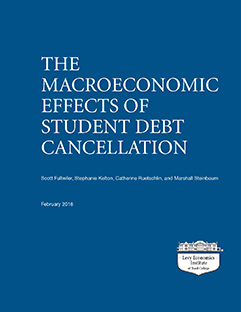
Publications
Selective Migration As a Basis for Upward Mobility?
The Occupations of the Jewish Immigrants to the United States, ca. 1900
The upward mobility of Jews who migrated to the United States at the turn of the nineteenth century has been explained as a function of premigrational cultural characteristics (such as a tradition of learning) or premigrational structural attributes (skills in certain industries and occupations that could be applied in the new country). In this working paper, Senior Scholar Joel Perlmann does not discount either of these explanations, but suggests that more attention should be paid to the rapid rate of entry of Jews into trade.
What, other than selective migration, might explain the variations in occupational representation among immigrants? Did immigrants lie about their occupation upon entry to the United States? Did the method of reporting change from one year to the next? Did immigrants report the occupation they had practiced in their country of origin or the occupation into which they wished to gain entry upon arrival?
To answer these questions, Perlmann first examines the claim that immigrants misreported their occupation. He then examines the passenger list data for internal reporting consistency over time, checks the consistency of this source against the US Immigration Commission's reports, and compares the passenger list data to reports on stated occupations among the same population at a later time (the 1910 US Census). The passenger list data appear to be internally consistent, at least for male occupations. However, the occupational mix taken from the passenger list data does not appear to be consistent with the data of either the Immigration Commission or the Census, while those two sources are more consistent with each other. The Immigration Commission and Census data indicate that Jewish immigrants working in manufacturing in the United States had at least some prior experience in trade in their native country, which lends some credence to the structural idea that the upward mobility of Jewish immigrants in trade was at least in part the result of prior skills in trade itself (rather than that their work in manufacturing provided Jewish immigrants with the basis for entering trade).

